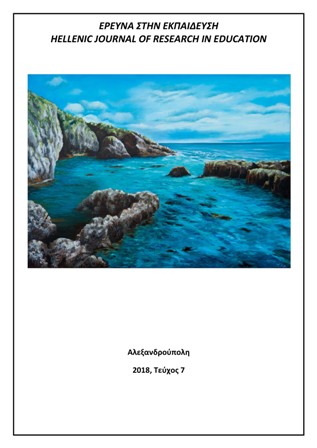Peer group inclusion of mild intellectually disabled preschoolers through team play: a pilot study

Abstract
Peer group has a major impact on the formation of a young person’s social identity. In the early years, peer culture is mainly expressed in free play, during which children begin to act collectively, share with, form friendly relationships and establish their own routines. Intellectually disabled children have difficulties fitting in peer groups, due to cognitive restrictions and the lack of relative social experiences.
The hypothesis of the research was to detect whether if an intellectually disabled student is able to respond to peer’s team game demands, then his acceptance by the group is expected to be reinforced. The program concerned a kindergarten student with intellectual disability in the resource room. Data processing showed improvement in the student’s ability to follow the game rules and in the required skills, and eliminations of his negative, unaccepted behaviors, during the game. Consequently, his acceptance by the fellow students was enhanced.
Article Details
- How to Cite
-
Μπάρμπας Γ. Σ., & Τρυποπούλου Ο. (2018). Peer group inclusion of mild intellectually disabled preschoolers through team play: a pilot study. Hellenic Journal of Research in Education, 7(1), 14–27. https://doi.org/10.12681/hjre.15786
- Issue
- Vol. 7 No. 1 (2018)
- Section
- Articles

This work is licensed under a Creative Commons Attribution-NonCommercial-ShareAlike 4.0 International License.
Authors who publish with this journal agree to the following terms:
- Authors retain copyright and grant the journal right of first publication with the work simultaneously licensed under a CC-BY-NC-SA that allows others to share the work with an acknowledgement of the work's authorship and initial publication in this journal.
- Authors are able to enter into separate, additional contractual arrangements for the non-exclusive distribution of the journal's published version of the work (e.g. post it to an institutional repository or publish it in a book), with an acknowledgement of its initial publication in this journal.
- Authors are permitted and encouraged to post their work online (preferably in institutional repositories or on their website) prior to and during the submission process, as it can lead to productive exchanges, as well as earlier and greater citation of published work (See The Effect of Open Access).


